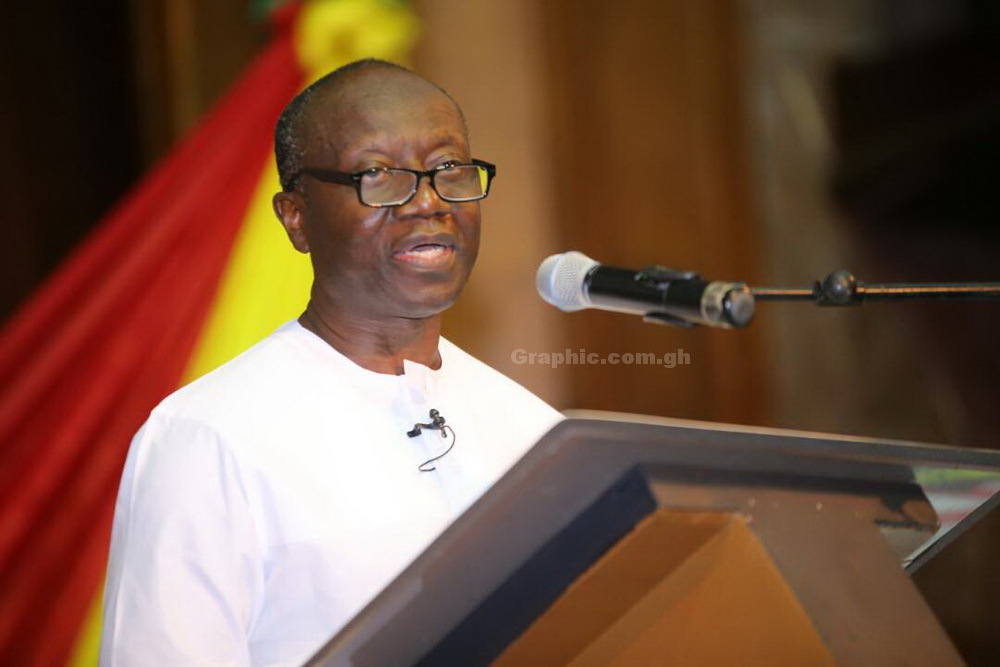The Minister of Finance, Mr Ken Ofori-Atta, has said the stabilisation of the economy will restore confidence in the local currency and eventually get the people to desist from taking refuge in the United States dollar.
According to him, some business and individuals had found it necessary and more convenient to hedge against the dollar because of the macroeconomic instability in the past but noted that with the progress being made so far in the management of the economy, the confidence in the local currency would be restored.
Mr Ofori-Atta said this in answer to a question posed by the GRAPHIC BUSINESS about the dollarisation of the economy at a news conference held in Accra on Monday.
Analysts on dollar
Many economists had argued that the use of the dollar alongside the local currency, the cedi, which is the country’s sole legal tender by law, was a clear demonstration of the lack of confidence in the economy.
According to them, the practice was also a blatant disregard for the law and wondered why the handlers of monetary policy in the country had failed to control the phenomenon.
The president of the Ghana Bankers Association (GAB), Mr Alhassan Andani, in a recent interview with the paper criticised the use of the dollar as one of the legal tenders in the country aside the Ghana cedi.
He said: “It is wrong for traders to charge in dollars because this is not done anywhere except Ghana and what we have done by this is that, we have planted the seed of our own demise”.
But as to how the phenomenon will be officially stopped according to the law, the finance minister did not say except to bank his hopes on the efforts being made to restore confidence in the economy and make the practice unattractive.
Macroeconomic performance
Providing the macroeconomic updates at the news conference, Mr. Ofori-Atta said the government managed to reduce the rate of price increases (inflation) from 15.4 per cent in 2016 to 11.8 per cent at the end of 2017 and further to 10.3 per cent as at the end of January this year.
“This puts the projection to have a single-digit inflation by the end of the year on course,” he said.
Explaining how that happened, he attributed the success to the government’s fiscal consolidation and tight monetary policy, noting that the projection of 8.9 per cent end-year inflation was feasible.
On a question about people complaining that they do not feel the falling inflation in their pockets, Mr Ofori-Atta said the fact that the frequency in the upward adjustments of products and services had slowed was savings for people.
He said people might not notice significantly but the reality was true about what lower inflation in a country did to the purchasing power of people.
On interest rate, he mentioned that there were signs of it dropping drastically to hover below 20 per cent.
He said the banks had not responded as expected to the developments at the macro front saying, “it might be because cost of funds, among other factors, but it will surely come down to more appreciable levels”.
Revenue mobilisation
“The government is also shifting focus to reduce the annual budget gap and rely more on domestic revenue mobilisation as part of efforts to actualise the President’s dream of having a ‘Ghana Beyond Aid’,” he said.
Last year, the Ghana Revenue Authority (GRA) could not meet its revenue target as it raked in GH¢32.3 billion, representing a shortfall of GH¢1.1 billion.
The amount, however, represented a nominal growth of 22.3 per cent over the 2016 collection target and was the GRA’s best performance in the past five years.
Mr Ofori Atta was optimistic that with the collaboration between the GRA and the ministry, the 2018 target will be met.
He asked income earners to honour their tax obligations to enable the country to raise the needed revenue to embark on more development projects in the country without relying on aid.
